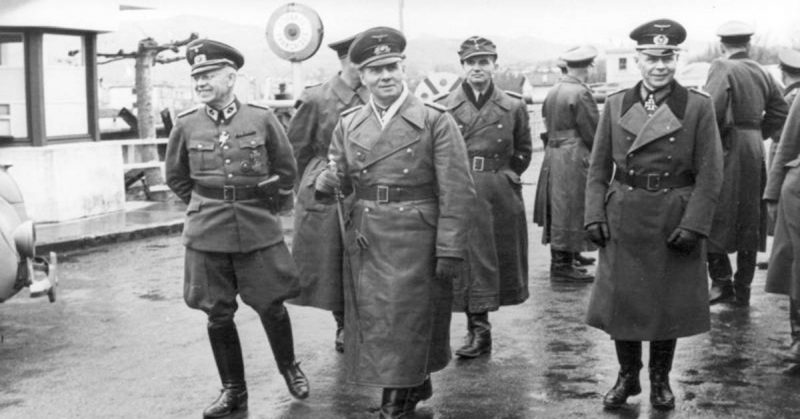Roy Wooldridge died at the age of 97. He was a decorated veteran of World War II whose life was once spared when Erwin Rommel, a Nazi field marshal, who decided he should not be shot by a firing squad.
Woolridge had been captured in France just before D-Day in 1944. He was brought to appear before Rommel who made the decision to not have Woolridge shot.
Woolridge received the Military Cross twice. He lived his later years in Cardiff which is where he was buried.
He served as a Royal Engineer during the war. Woolridge shared his stories with the BBC’s Antiques Roadshow in 2014.
He said that Rommel asked him if he needed anything. Woolridge replied, “a pint of beer, cigarettes, and a good meal.”
He had a collection of war memorabilia that was valued at £10,000. He declined to sell any of it and is donating the entire collection to the Imperial War Museum in London.
Woolridge attended Llanelli Grammar School and received a first class honors degree in mathematics from Aberystwyth University.
He was married three days before he received the telegram that ordered him to report for duty. He was sent to Normandy to make sure there were no mines that would destroy the boats in the D-Day invasion.
After the war, he was a college lecturer in Brighton, Wolverhampton, and Lanchester in Coventry and eventually became a college principal in Derby.
He did not discuss his experiences in the war until much later in his life.
He received the Military Cross with Bar, bearing testimony to his status as a war hero, BBC News reported.
Woolridge considered Rommel to be a man of honor. He disobeyed an order from Hitler to shoot anyone caught without dog tags, which Woolridge was.
Rommel disagreed with the order, so Woolridge has always felt like he owed his life to the field marshal.
Woolridge died on December 9th. A procession with a New Orleans-styled jazz band was held on Thursday before his funeral at St. Martin’s Church in Roath.
